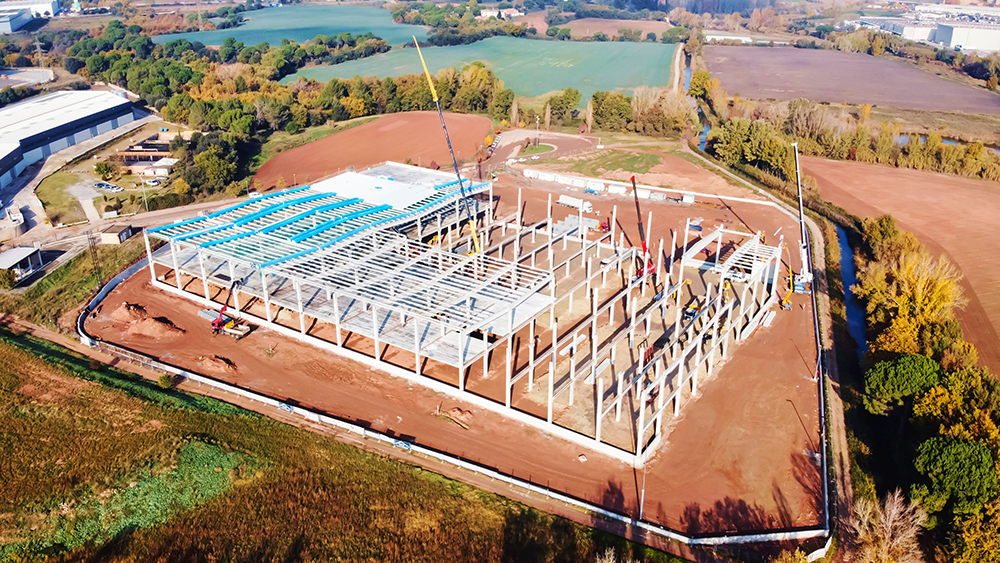The facility will enable the fresh ready meals firm to step up its production capacity, start up new product lines and expand its business abroad.

Sebastià Mas set up Casa Mas in 1996 when he spotted the chance to shift into making fresh ready meals after three years spent in meat product distribution. He opted for traditional recipes featuring premium quality ingredients and the small business gradually expanded on the back of commitment, perseverance, effort and strategy. Today the firm has 60 items, distributes its products right across Spain, is sold in large food stores and small neighbourhood shops, and also has an online sales channel.
Following its expansion over recent years, Casa Mas has decided to push ahead and build a new production plant in Sallent to cater for the company’s development needs. The new facility will cover 33,000 square metres (the current production plant totals 6,000 square metres).
Almost half of the plant’s floor area will be set aside for the kitchen which will be more technologically advanced and innovative. Here they will continue to make their time-honoured recipes while also fashioning new product lines in keeping with Can Mas’s identity. Plus the new facilities will allow for enhanced standardisation of product manufacture processes which will step up the company’s production capacity.
To finance the construction of the new plant, Casa Mas has taken out a syndicated loan with BBVA in which the ICF has been involved through the ICF Crèdit Investment facility. “The ICF has always been a significant and strategic player in the company’s financing,” says Sebastià Mas, Casa Mas’s owner.
Sustainability; a key factor at the new plant
Casa Mas’s “One step MAS [‘more’ in Catalan] for the planet” plan, which seeks to unlock a sustainable future and combat climate change, features several initiatives at the new production plant. For example, Casa Mas is to fit solar panels to meet 15% of the facility’s energy needs at full capacity, install a waste heat recovery tank to generate all the hot water to be used in industrial cleaning, and build a wastewater treatment plant to cut water usage.
The company is additionally rolling out other sustainability measures in packaging, process digitalisation and upgrading its vehicle fleet. Casa Mas aims to replace most packaging with cardboard packaging and cut its use of plastic by 97% by 2030 while it also plans to reduce its carbon footprint to 45% of CO2 emissions over ten years.
Future challenges
Building the new production plant is a turning point in Casa Mas’s history and it will play a key role in achieving the firm’s main objectives: driving new products, opening up new marketing channels and expanding abroad. “The new project is a challenge,” admits Sebastià Mas, the company’s owner. “However, at Casa Mas we’ll continue to put all our effort, enthusiasm and passion into positioning the company as a leader in the fresh refrigerated ready meals market.”
